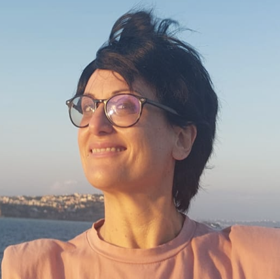Keynote Speakers
Programme >Keynote Speakers
Keynote speakers will be announced soon.
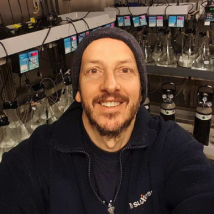
Theme 1
Sam Dupont
Ocean and Climate dynamics, Council for Scientific and Industrial Research (CSIR) Cape Town, South Africa
Sam Dupont is an Associate Professor and Senior Lecturer in Marine Eco-Physiology at the University of Gothenburg. His main research focus is the effect of global changes such as ocean acidification and warming on marine ecosystems. He has published in more than 200 publications in journals including Nature, Science, PNAS and TREE. Sam is also working on the development of innovative science communication and education strategies to tackle global challenges. The third aspect of his work aims at evaluating and building capacities for marine science in developing countries.
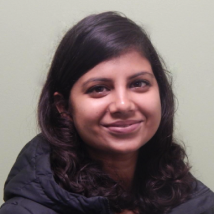
Theme 2
Shikha Singh
Ocean and Climate dynamics, Council for Scientific and Industrial Research (CSIR) Cape Town, South Africa
Shikha Singh is a scientist at the Indian Institute of Tropical Meteorology in Pune, India, as well as a Fulbright Scholar. She is an Early Career Researcher (ECR) member of the Indian Ocean Regional Panel for CLIVAR. Dr. Singh's research primarily focuses on ocean modeling, with an emphasis on resolving small-scale upper ocean processes within the models. Her areas of interest include investigating climate model biases, climate variability, and marine heatwaves. In addition to her research, she plays an active role in supporting the development of ECRs and has created the SDA2 framework for this purpose. This framework is designed to facilitate collaboration among ECRs around the world.
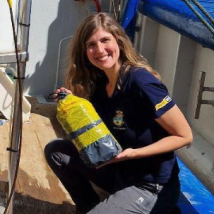
Theme 3
Catarina V. Guerreiro
Ocean and Climate dynamics, Council for Scientific and Industrial Research (CSIR) Cape Town, South Africa
Catarina V. Guerreiro is a marine biogeoscientist with expertise in coccolithophore (calcifying phytoplankton) signatures from sediments and water column in present-day marginal to open-ocean environments, its application as a tool to unravel (paleo)environmental variability, and its role in the organic and inorganic biological carbon pumps. Her first steps exploring the effects of Saharan dust in the Atlantic started in 2015, when she received a MSC COFUND Fellowship to work at the University of Bremen. She currently works as a Tenure Track Researcher and Lecturer at the University of Lisbon, leading her FCT-CEEC project CHASE ("CHASing the environmental Effects of dust deposition across the Atlantic and Southern Ocean: a coccolithophore perspective") at the University of Lisbon (www.chase-dust.com).
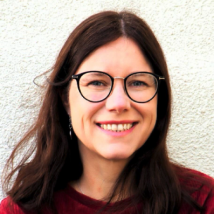
Theme 4
Manuela van Pinxteren
Ocean and Climate dynamics, Council for Scientific and Industrial Research (CSIR) Cape Town, South Africa
Manuela van Pinxteren is a senior scientist at the Leibniz Institute for Tropospheric Research (TROPOS). Her research is dedicated to investigating interactions between the ocean and the atmosphere, with a particular focus on marine aerosol particles. The main aim is to identify the influence of the surface ocean on the composition and fate of atmospheric particles. To this end, Manuela is developing analytical methods to unravel the mysteries of organic matter in aerosol particles and in the sea surface microlayer. By coordinating various marine projects and field campaigns, Manuela has extended her expertise from the tropical oceans to the polar regions.
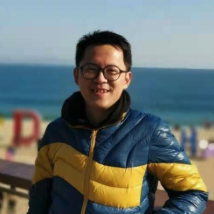
Theme 5
Yee Jun Tham
Ocean and Climate dynamics, Council for Scientific and Industrial Research (CSIR) Cape Town, South Africa
Yee Jun Tham received his PhD in atmospheric chemistry from The Hong Kong Polytechnic University, Hong Kong, China. After working as a postdoctoral researcher at the University of Helsinki, Finland, he has been working at the School of Marine Sciences, Sun Yat-sen University since 2021. He is interested in the cycles of halogens (Cl, Br, I) in the atmosphere and surface ocean. His research mainly focuses on the field observation and laboratory simulation of the emission of halogens, atmospheric processes of reactive halogens (including heterogeneous cycling), and their impacts in marine and coastal environment.
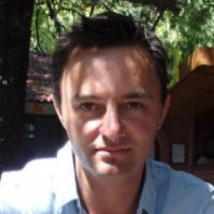
Upwelling systems
Boris Dewitte
Ocean and Climate dynamics, Council for Scientific and Industrial Research (CSIR) Cape Town, South Africa
Boris Dewitte graduated from University of Toulouse in 1998. His research areas include tropical climate variability, ocean and climate, climate change, air-sea interaction, multi- model analysis, regional biogeochemical coupled model development. While his early interest was on tropical Pacific climate dynamics (El Niño), his work has progressively evolved with a more regional focus, in particular in relation with eastern boundary upwelling systems. Over the past 15 years, he has been involved in various projects dedicated to the study of the Humboldt current system, dealing with regional air-sea interactions and the physical forcing of Oxygen Minimum Zone. He has been a member scientific committee of CLIVAR (2015-2019), co-chair of the Eastern Pacific Task Team of the TPOS2020 program (2019-2022), and currently a member of the Scientific Steering group of the WCRP Earth System Modelling and Observations (ESMO) Core Project. Since 2021 he is also the director of a project entitled CLAP (Research Program for Climate Action Planning) that investigates of how climate, environmental, biogeochemical and socio-economic drivers affect the coastal marine ecosystems in the central Chile region.
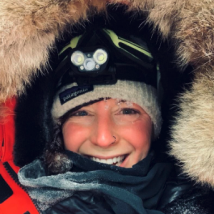
Polar ocean and sea ice
Jessie Creamean
Ocean and Climate dynamics, Council for Scientific and Industrial Research (CSIR) Cape Town, South Africa
Jessie Creamean is an atmospheric research scientist at Colorado State University, Colorado, USA. Her research is focused on the systematic examination of aerosols originating from biogenic and geogenic sources such as vegetation, soils, and marine environments and how those particles facilitate the formation of ice in clouds, specifically the polar regions. Over the last 10 years, she has undertaken numerous field campaigns to the Arctic and recently has started working in the Southern Ocean region and Antarctica to develop a comprehensive dataset aimed at advancing our understanding of aerosol-cloud interactions in the high latitudes. When she is not traveling to the ends of the earth, she enjoys adventures in the Rocky Mountains with her two golden retrievers, Whiskey and Montana.
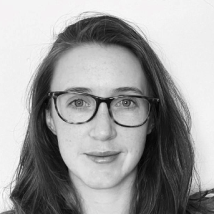
Indian Ocean
Tanya Marshall
Ocean and Climate dynamics, Council for Scientific and Industrial Research (CSIR) Cape Town, South Africa
Tanya Marshall’s research explores nutrient supply and biogeochemical cycling in the modern ocean using geochemical tracers like nitrate isotopes and nutrient stoichiometry. She earned her Ph.D. from the University of Cape Town, South Africa, where her research was focussed on characterising nitrogen cycling in the understudied South Atlantic and South Indian Oceans. More specifically, her work investigated how physical and biogeochemical processes that occur over multiple spatial scales impact surface ocean fertility, and carbon export potential. Tanya is currently a Presidential Postdoctoral Research Fellow in the Department of Geosciences at Princeton University, where she is working on developing a new quantitative framework for interpreting nitrate isotope ratios in the ocean.

Science and Society
Erik van Doorn
Ocean and Climate dynamics, Council for Scientific and Industrial Research (CSIR) Cape Town, South Africa
Erik van Doorn is a lecturer at the Australian National Centre for Ocean Resources & Security (ANCORS) at the University of Wollongong. Before, he worked at the International Tribunal for the Law of the Sea, Kiel University as well as at the GEOMAR Helmholtz Centre for Ocean Research Kiel. Erik’s fields of work are international law of the sea and international environmental law. His research has focused on marine resources, the marine uptake of carbon dioxide & ocean observing.
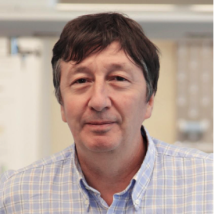
Climate Intervention
Doug Wallace
Ocean and Climate dynamics, Council for Scientific and Industrial Research (CSIR) Cape Town, South Africa
Doug Wallace is Canada Excellence Research Chair (CERC) Laureate and Canada Research Chair in Ocean Science and Technology at Dalhousie University in Halifax, Canada. He is also a Scientific Director of the Marine Environmental Observation Prediction and Response Network, a large Canadian network focused on marine risk. He is Co-Chair of DOTCAN (Development of Ocean Technical Capacity with Africa Nations): a not-for-profit that promotes grass-roots cooperation with West African countries. He is a Fellow of the Royal Society of Canada and has co-authored over 145 publications. Dr. Wallace has contributed to building multidisciplinary research teams and programs in the USA, Germany, Europe, West Africa and Canada and is a former Chair of SOLAS.
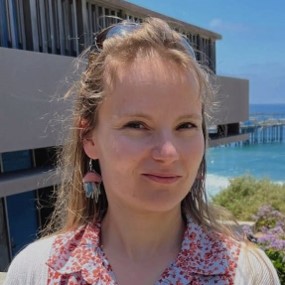
SOLAS 3.0
Julie Dinasquet
Ocean and Climate dynamics, Council for Scientific and Industrial Research (CSIR) Cape Town, South Africa
Julie Dinasquet is a marine microbial ecologist at the Scripps Institution of Oceanography. Her research focuses on studying multiple interactions between ocean and atmosphere through the microbial lens. This includes investigating the cycling of volatile compounds by marine microbes, the impact of atmospheric deposition on microbial processes, or the role of the atmosphere in dispersal of marine microbes. Julie is the new director of SOLAS Summer School and co-coordinator of SOLAS 2026-2035 Science Plan section on "Scientific Community and Skill Development".
